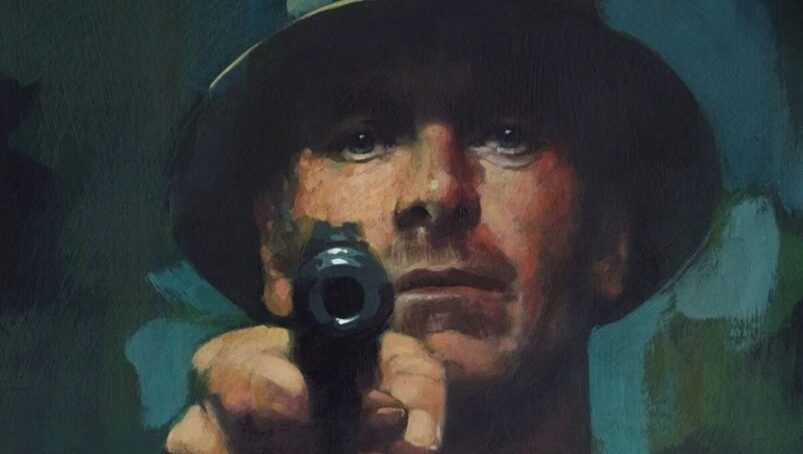One must imagine Albert Camus enjoying The Killer. The new film from David Fincher, his first from a script by Andrew Kevin Walker since Se7en, sees the famously austere filmmaker take on a story about a seemingly austere hitman, capable of recognizing the meaninglessness of the world around him, but incapable of detaching from it. Based on the graphic novel by Matz (Alexis Nolent’s pen name) and Luc Jacamon, the film follows Michael Fassbender’s titular killer (whose many, many aliases we hear and see, and whose true name we never learn) as he sets out on a quest for revenge against the people who hurt his girlfriend after a job gone wrong.
Before that quest begins, Fincher and Walker introduce us to the killer’s process and rules. In classic noir voiceover, Fassbender tells the audience about the discipline necessary in this line of work, about how it’s the boredom that’s more dangerous than any bullet or knife, and that empathy and impulsivity have no place in professional killing. We see him go about a routine, ensuring that he remains physically fit and mentally vigilant so that he can act when necessary. The killer is a person, as any great existentialist will tell you we all are, characterized by his actions and his habits.
These voiceover monologues also tend to the philosophical, or at least anthropological as he speaks of the foolishness of believing in the inherent goodness of humankind based on our actions as a species. Yet he can’t stop himself from smiling at the parents and children or people walking their dogs that pass by his window as he stakes out a hotel across the street. A hint that this killer draws a distinction between the abstract “humanity” and specific “human,” or animal, for that matter.
That hint becomes a roar when he returns home after the job goes wrong, and finds his home ransacked and his girlfriend badly beaten by associates of the client who ordered the job he botched. He becomes obsessed with revenge, following the singular, emotionally motivated task with disregard for his previously stated rules.
Rules that he repeats, and ignores throughout the film. It’s a joke that only grows more funny the shorter his fuse becomes, going so far as to interrupt the voiceover with bursts of violence at times. It’s one joke among many in a film that doesn’t take death and destruction caused by its protagonist too seriously.
The first joke in the film comes as somewhat of a surprise, breaking the self-serious tone of a monologuer going about the business of murder with a self-assessment that would be at home on a middle school playground. There’s also the fact that all the killer, who admits to a fondness for music, ever listens to is The Smiths; a character detail that viewers will have to decide for themselves to laugh at or not.
The Smiths’ songs are used alternately as main soundtrack and background noise, but they’re everpresent, another piece of the world drawing us into the life of our protagonist. They combine with a propulsive score from regular Fincher collaborators Trent Reznor and Atticus Ross, whose work here stays firmly in an ultralow space that will force any home theater owners’ subwoofers to fight for their lives.
Combined with the deep score, Erik Messerschmidt’s striking cinematography pulls us into the multihued world of the killer. As the killer waits for his opportunity, the opening scenes shift from gray and blue days to treacly yellows and greens at night in the barren concrete WeWork space he’s rented.
As the film goes on, the killer’s globetrotting invites audiences to a variety of spaces with differently curated aesthetics, from the naturally and artificially lit but always bright cities and forests of the Dominican Republic to the flatly lit beige of an office in New Orleans. As usual though, Fincher’s choices ensure that no matter how beige or gray an image, every moment is visually interesting.
The Killer repeatedly emphasizes that none of us make a difference to the world around us, an early voiceover lesson tells us even highly skilled professional murderers never make a dent in the average death statistics. In the face of that, the film seems to argue, it is not our significance to the world at large, but the things we find or make significant to ourselves that make life worth living, and lives worth taking. It’s a beautifully executed genre exercise that’s purposefully slight, something that may make it more forgettable, or more brilliant.
Review screener provided
READ NEXT: 10 Best Anime For Beginners to Watch
Some of the coverage you find on Cultured Vultures contains affiliate links, which provide us with small commissions based on purchases made from visiting our site.




